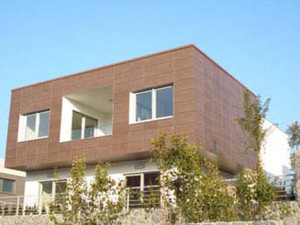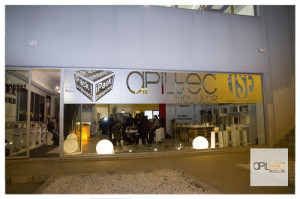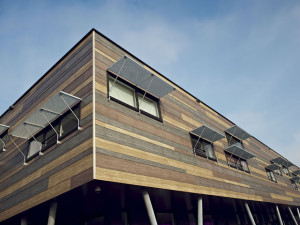Apiltec may be the final solution to the worldwide problem of shelter. The company, located in Paterna, just outside the city of Valencia, is a leader in the new architectural model of modules.
The system works more or less like a Lego set, with pieces being added or subtracted according to the needs of the inhabitants of the dwelling; but unlike Lego, little children can’t swallow the pieces.
After a series of successful promotions in Spain, the company is outreaching to foreign parts, and is currently tendering for a contract to build between 200 and 1,000 dwellings for civil servants in the west African state of Togo, at Atakpamé.
The idea of the group of restless young Valencians who founded Apiltec in 2013 was to create homes which didn’t involve a lifetime of enslavement to the banks with their abusive and hard to get mortgages.
Unlike traditional builders, who promise prompt service and then disappear leaving a pile of rubble in your garden or kitchen, Apiltec can finish a 200 square metre house in a mere three months.
The company is also involved in prospective projects in Columbia, Tanzania and Costa Rica, as well as Spanish projects in Murcia, Cantabria and Alicante.
The pieces of Lego, sorry, the modules, are tailor made in a variety of materials and colours for the client, taking into account the topography and climate, at their sites in Pobla de Vallbona and Paterna, and are then transported by road to their final destination.
With the modular system, having babies doesn’t mean you have to move to a bigger house; you can just add a module and expand your family without worry.
A 40 square metre house can cost as little as 30,000 euros, and can grow as required and as the owner’s income grows, putting an end to the economic barrier faced by so many young people and couples when looking for their first independent home.
Furthermore, low energy consumption and ecological questions are fully taken on board when preparing the modules.
Not only that, but, adapting to the needs and the wishes and (dare I say it these days?) dreams of their clients, building progress can be followed online through photographs which keep the buyer up to date on progress.
Without any public aid or subsidy, Apiltec employs 50 people at present, and hopes to increase that number as the idea catches on, both in Spain and in the rest of the world.







